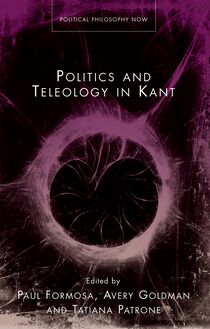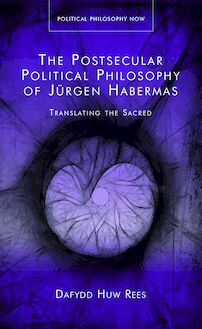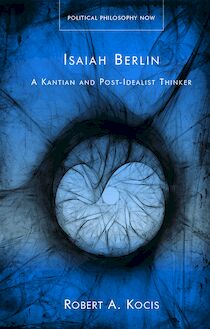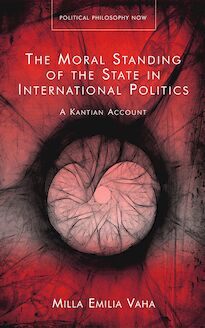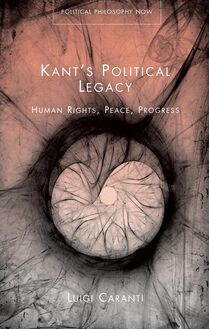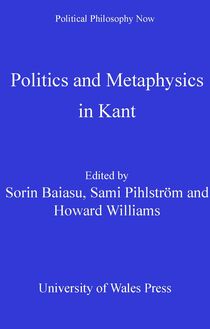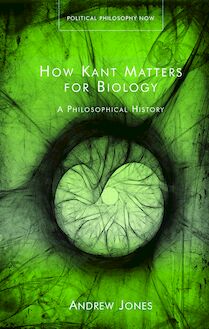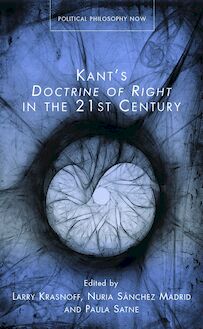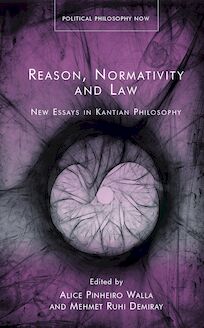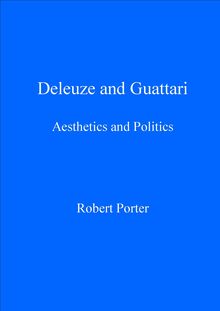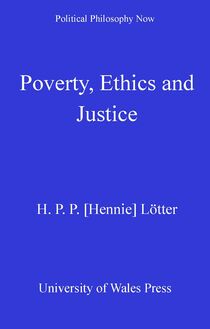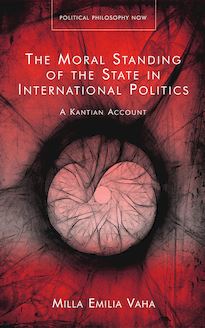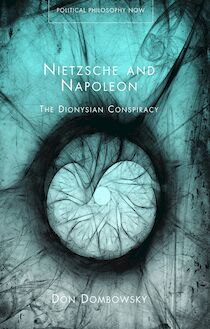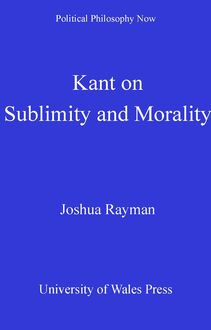The Postsecular Political Philosophy of Jürgen Habermas , livre ebook
127
pages
English
Ebooks
2018
Vous pourrez modifier la taille du texte de cet ouvrage
Obtenez un accès à la bibliothèque pour le consulter en ligne En savoir plus
Découvre YouScribe en t'inscrivant gratuitement
Découvre YouScribe en t'inscrivant gratuitement
127
pages
English
Ebooks
2018
Vous pourrez modifier la taille du texte de cet ouvrage
Obtenez un accès à la bibliothèque pour le consulter en ligne En savoir plus
Publié par
Date de parution
01 septembre 2018
Nombre de lectures
1
EAN13
9781786832740
Langue
English
Jürgen Habermas is arguably the world’s most influential living philosopher – by introducing ideas such as the public sphere, constitutional patriotism, and the discourse theory of law and democracy, he has transformed modern political philosophy. But since 2001, Habermas’s thought has taken an unexpected turn. This book is the first full-length treatment of Habermas’s postsecular political philosophy, and critically analyses his new direction of thought. The author places the postsecular turn in the context of Habermas’s long-standing commitment to developing a postmetaphysical account of morality, politics and human communication; the tension between secular liberal democracy and religious freedom is real, but there may be losses as well as gains to Habermas’s quest to translate the sacred.
List of Tables
Introduction - At the Paulskirche
1. Sacred and Profane
2. Religion and Postmetaphysical Thinking
3. The Anthropic Problem
4. Rawls, Habermas and the Critique of Secularism
5. Postsecular Deliberative Democracy
6. Pyrrhic Translation
Conclusion - Ethics and Metaphysics
Notes
Bibliography
Index
Publié par
Date de parution
01 septembre 2018
Nombre de lectures
1
EAN13
9781786832740
Langue
English
POLITICAL PHILOSOPHY NOW
Chief Editor of the Series:
Howard Williams, Aberystwyth University and Cardiff University, Wales
Associate Editors:
Wolfgang Kersting, University of Kiel, Germany Renato Cristi, Wilfrid Laurier University, Waterloo, Canada Susan Meld Shell, Boston College, Massachusetts, USA David Boucher, Cardiff University, Wales
Affiliate Editors:
Peter P. Nicholson, formerly of University of York, England Steven B. Smith, Yale University, Connecticut, USA
Political Philosophy Now is a series which deals with authors, topics and periods in political philosophy from the perspective of their relevance to current debates. The series presents a spread of subjects and points of view from various traditions which include European and New World debates in political philosophy.
Also in series
Kant’s Doctrine of Right in the Twenty-first Century
Edited by Larry Krasnoff, Nuria Sánchez Madrid and Paula Satne
Hegel and Marx: After the Fall of Communism
David MacGregor
Politics and Teleology in Kant
Edited by Paul Formosa, Avery Goldman and Tatiana Patrone
Identity, Politics and the Novel: The Aesthetic Moment
Ian Fraser
Kant on Sublimity and Morality
Joshua Rayman
Politics and Metaphysics in Kant
Edited by Sorin Baiasu, Sami Pihlström and Howard Williams
Nietzsche and Napoleon: The Dionysian Conspiracy
Don Dombowsky
Nietzsche On Theognis of Megara
Renato Cristi and Oscar Velásquez
Francis Fukuyama and the end of history
(second edition) Howard Williams, David Sullivan and E. Gwynn Matthews
Kant’s Political Legacy: Human Rights, Peace, Progress
Luigi Caranti
POLITICAL PHILOSOPHY NOW
The Postsecular Political Philosophy of Jürgen Habermas
Translating the Sacred
Dafydd Huw Rees
UNIVERSITY OF WALES PRESS • CARDIFF • 2018
© Dafydd Huw Rees, 2018
All rights reserved. No part of this book may be reproduced in any material form (including photocopying or storing it in any medium by electronic means and whether or not transiently or incidentally to some other use of this publication) without the written permission of the copyright owner except in accordance with the provisions of the Copyright, Designs and Patents Act 1988. Applications for the copyright owner’s written permission to reproduce any part of this publication should be addressed to The University of Wales Press, University Registry, King Edward VII Avenue, Cardiff CF10 3NS.
www.uwp.co.uk
British Library Cataloguing-in-Publication Data
A catalogue record for this book is available from the British Library.
ISBN: 978-1-78683-272-6
eISBN: 978-1-78683-274-0
The right of Dafydd Huw Rees to be identified as author of this work has been asserted in accordance with sections 77, 78 and 79 of the Copyright, Designs and Patents Act 1988.
The publisher has no responsibility for the persistence or accuracy of URLs for any external or third-party internet websites referred to in this book, and does not guarantee that any content on such websites is, or will remain, accurate or appropriate.
Cover: Hayes Design www.hayesdesign.co.uk
For Rowan
Perthyn, nid perchen.
Contents
List of Tables
Introduction – At the Paulskirche
1 Sacred and Profane
2 Religion and Postmetaphysical Thinking
3 The Anthropic Problem
4 Rawls, Habermas and the Critique of Secularism
5 Postsecular Deliberative Democracy
6 Pyrrhic Translation
Conclusion – Ethics and Metaphysics
Notes
Bibliography
List of Tables
Table i.1: Formal pragmatics – elements of language
Table i.2: The social formation and social evolution
Table 1.1: Worldviews
Table 2.1: Metaphysics, philosophy of consciousness, and postmetaphysical thinking
Introduction – At the Paulskirche
The Postsecular Turn
At the Paulskirche in Frankfurt, on 14 October 2001, Jürgen Habermas rose to address the audience. He had been awarded the Peace Prize of the German Booksellers and Publishers Association. Little more than a month earlier Islamic extremists, using hijacked planes, had killed 2,996 people in New York and Washington DC. Habermas delivered an address entitled ‘Faith and Knowledge’. 1 He called for the secular West to re-evaluate its vision of modernity; he called for dialogue between believers and non-believers, for the translation of religion’s ethical insights into secular language; he argued for the inclusion of religious voices in the public sphere in a new, ‘postsecular’ deliberative democracy.
Many commentators see this as the moment of Habermas’s post-secular turn: the beginning of a new phase in his work, in which the hitherto neglected topic of religion takes centre stage. If we can indeed speak of a postsecular turn in Habermas’s thought – and, as we will see, the idea is disputable – it was of a piece with a broad trend among Western philosophers and social and political theorists, which has been visible since the 1980s. The Weberian assumption that religion will be privatised and will fade away as human societies become more developed, rationalised and dis-enchanted has been put into question, both by the undeniable persistence of religious belief and its increasing visibility in political life. 2 Theorists such as Charles Taylor 3 and José Casanovas 4 have argued that the supposedly universal vision of a secular modernity is in fact rather particularistic, limited to a certain historical moment and to parts of the Western world alone. Habermas is far from the only philosopher who looked back at the beginning of the twenty-first century and reconsidered his assumptions about the sacred and the secular.
What is notable about Habermas’s post-2001 work is his unexpected and vociferous support for religion as an integral part of contemporary societies, as a source of precious ethical values, and as an equal partner in dialogue for philosophy. Habermas’s major texts on social theory, ethics and political philosophy barely consider religious belief as a modern phenomenon. And yet today, he insists that non-believers must open themselves to the possible truth-contents of religious language, and collaborate with their religious fellow-citizens in the public sphere. 5 He claims that many of philosophy’s central concepts can be traced back, genealogically, to the Judaeo-Christian tradition. 6 He castigates secular political theory for marginalising and alienating religious believers. 7 From a philosopher who had previously paid little attention to religion, this change in tone and perspective is striking.
Linguistification, Appropriation, Translation
The purpose of this book is to go behind the scenes of the post-secular turn. My aim is to look critically at the background of this new phase in Habermas’s work, and especially at the political philosophy which emerges from it. I will make two claims. First, Habermas’s new approach to religion has as much to do with ‘endogenous’ factors, namely the blind spots and limitations of his own philosophical project, as it does with ‘exogenous’ factors, such as violent external events and the uncomfortable position of religious believers in secular democracies. Secondly, postsecular deliberative democracy, the political theory which Habermas has developed in the years since 2001, is a flawed model which cannot perform the tasks Habermas sets for it. Above all, the model’s central procedure of ‘translating’ religious inputs to the public sphere into secular language is unworkable.
For Habermas’s current philosophical work to be postsecular, it must at one time have been secular. Chapter 1 considers the role which religion plays in his social theory as it developed during the 1970s and 1980s, culminating with the Theory of Communicative Action . As we will see, at this time Habermas considered religions to be no more than the worldviews of traditional societies, tied to a particular level of communicative competence and moral capacity. Their social functions of providing group solidarity, social integration and moral legitimation are usurped in the modern era by communicative action. This transition, which Habermas calls the ‘linguistification of the sacred’, implies the obsolescence of religions in the modern era – if they survive at all, they are relics, with no significant role to play. This strongly secularist vision of modernity pervades the Theory of Communicative Action , and is reproduced to a great extent in Between Facts and Norms , his major work in political philosophy, published in 1992.
This was the high-water mark of Habermas’s secularism. But even during this period his view of religion was shifting, in large part due to his development of a philosophical paradigm, postmetaphysical thinking, and a moral philosophy, the discourse theory of morality. Chapter 2 discusses these developments, and shows that the constraints of postmetaphysical thinking and the discourse theory of morality create a space for modern subjects to borrow (or ‘translate’, or ‘appropriate’) religious ideas and values, above all for use in their ethical discourses. In a similar way, secular philosophies have for centuries borrowed religious concepts. Following on from this, Chapter 3 argues that by the end of the 1990s Habermas had become aware that this division of labour between postmetaphysical and religious discourse was unsustainable. The appearance of urgent ‘species-ethical’ questions, connected to human genetic modification and the growth of a ‘hard naturalist’ worldview, threatened to undermine his philosophical project. As I will show, making use of religious discourse represented a solution to this crisis. This, it seems to me, was the decisive endogenous factor behind Habermas’s postsecular turn.
In Chapter 4 , I turn to Habermas’s postsecular political philosophy. This chapter sets the scene by exploring the dispute between theorists of secular liberal democracy and their religious critics, especially in the wake of John Rawls’s Political Liberalism . Chapter 5 examines in detail Habermas’s arguments for p
